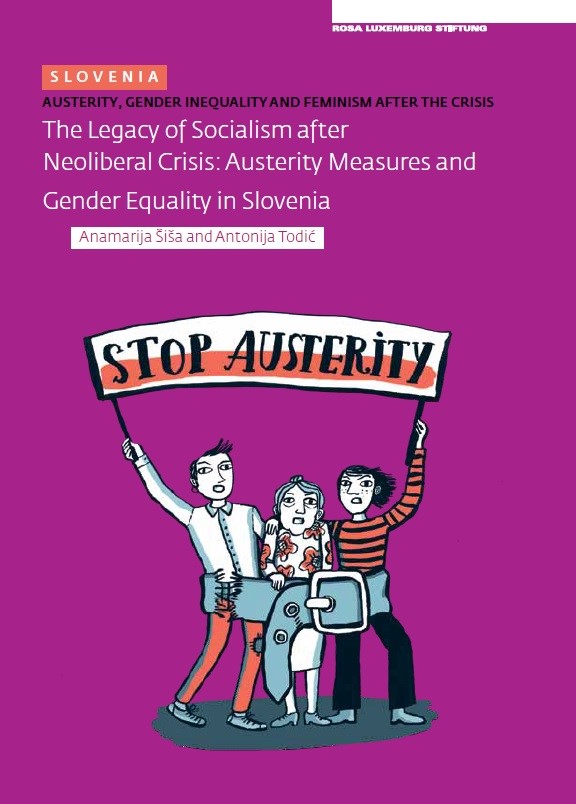THE LEGACY OF SOCIALISM AFTER NEOLIBERAL CRISIS

»After the disintegration of SFR Yugoslavia, Slovenia started the process of economic and political transition, leading to its eventual entry into the EU (as the first among Yugoslavian countries in 2004) and the Eurozone (2007). Compared to other ex-Yugoslavian countries, Slovenia’s transition to capitalism was relatively smooth, which was often presented in public discourse as the result of its supposedly ‘Western’ work ethic and liberal politics. However, its success was partly based on its superior economic position within Yugoslavia and on the absence of a radical ‘shock therapy’ of restructuring and privatization that was deployed in many other post-socialist countries (as well as the absence of a prolonged war).
[…]
This gradual transition had important implications for the position of women in Slovenian society. First and foremost, the laws that were introduced in Yugoslavia in the 1970s to enable women’s equal participation in the economic and public spheres were kept almost intact for a long time. Most notably, Slovenia was the only post-socialist country to retain fully paid parental leave for one year (100 % of the parent’s salary). Nonetheless, in the 1990s there were already various discussions regarding, among other things, the restructuring of parental leave, shortening the hours of kindergartens and introducing parttime work for mothers, all meant to reduce public expenses for social reproduction and relegate women to the domestic sphere, measures that would eventually be implemented in the 2010s…«
